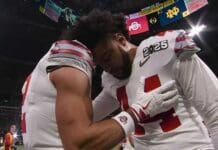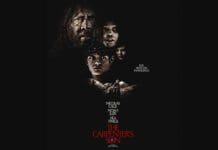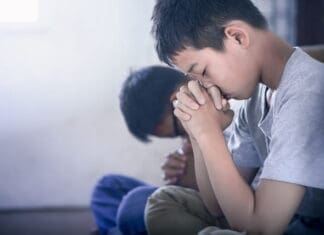We Are Church Documentary from Crazy Love Ministries on Vimeo.
Francis Chan is not one to hold his tongue when discussing what is wrong with the American church. A new documentary about Chan and his house church endeavor explores what could be so right with the American church.
“In America, Christianity has become this consumer thing,” Chan says in the 20-minute documentary, titled “We Are Church,” which touches on some of the themes of Chan’s new book, Letters to the Church.
“One of our elders calls it pastoral malpractice: You’re actually ruining people by making them consumers because you’re supposed to be turning them into servants.” This model is far from the instructions we receive in Scripture. “We don’t come to be served; we serve and give our lives as a ransom for many,” Chan says of what every believer should be doing to emulate Christ.
Put succinctly, we’ve “twisted” what it means to be the church, and Chan doesn’t mince words when he adds “it’s evil.”
So What Does Francis Chan Think the Church Should Look Like?
Besides Chan, a handful of members and leaders in Chan’s house church network are interviewed in the documentary. One gentleman, Sean Brakey, who hosts a house church (in his house) says church should have less emphasis on a killer sermon with a great worship set and greater emphasis on the members loving each other well and studying Scripture together.
You might think that as host or leader of the house church, Brakey prepares a sermon every week. This does not appear to be the case, though. He explains at their meetings “everyone’s bringing stuff”. Sometimes they will read a passage of Scripture and someone will comment on the text or God will highlight something to the group. Perhaps someone else thinks of a song and begins to sing it. Everyone, Brakey says, feels as if they “have something to contribute.”
The Priesthood of Believers
In fact, fellowship and studying Scripture are not exclusive of house meetings. At one point in the documentary, you see a lady waking up and spending time reading Scripture and praying early in the morning. You see her pull out her phone and scroll through the messages she’s received already from members of her group. The group members text one another to share an insight they got about the Scripture they’re reading.
In this way, the documentary makers imply, discipleship—specifically studying Scripture—is not facilitated in a top-down kind of way. Rather, the members themselves are facilitating it.
Family Is Not Just Nuclear
Sarah Zabala lived with Chan and his family for a time. Zabala says she came from a life of crime and drug addiction. “They accepted me in like a family member,” she recalls. “You get to see the good, the bad, the ugly when you’re living with somebody,” Zabala says. She specifically points to Lisa Chan, Francis’s wife, who modeled what it means to be a godly wife and mother to her.
Chan says more than being a family, the church is called to be a body. “If one hurts, we all hurt,” he says. This is the emphasis the members of the house churches strive to live out on a daily basis. One family fosters and adopts children. Another makes it a point to share meals with their neighbors on a regular basis. The emphasis is on opening up your home, inviting others in, and living in community.
The Discipleship Path Is Progressive
Chan explains there is a natural flow of people who show up, then become disciple-makers, then become pastors, then become elders. Once there are a few elders at one particular house church, another church can branch off. In this way, the network of churches hopes to see organic, non-centralized growth that doesn’t depend on a lot of structure at the “top.”














